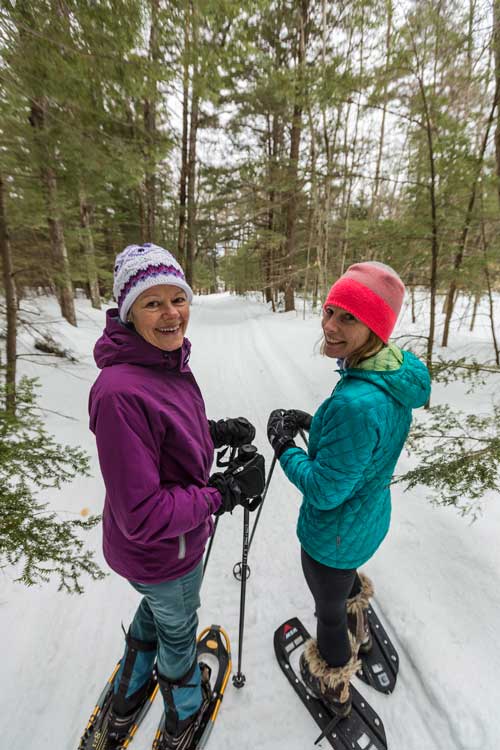
This land is a keystone parcel in SELT’s larger vision of connecting Pawtuckaway State Park to Great Bay through a corridor of conservation lands and trails. The Harveys have owned land in Epping for eight generations, and their decision to conserve these woods was decades in the making. And it was a welcome decision, enthusiastically endorsed at the 2015 Epping town meeting when 80% of voters supported a $250,000 warrant article to conserve this special place.
Harvey’s Kennard Hill Forest is big unto itself, but lies within a larger landscape of nearly 5,000 acres of unfragmented lands. This primarily hemlock hardwood-pine forest intermingled with beaver ponds and wetlands filters clean water to the north and Pawtuckaway River, and tributaries to the Wild and Scenic Lamprey River. And the broad landscape is recognized statewide for its high-quality habitat supporting common and uncommon species, from great blue herons to bobcat.
The forest remains private property, owned by the Harvey family and is permanently protected by a conservation easement held by SELT and NH Fish and Game. This land is well-regarded by hunters and cross-country skiers. Thanks to the Harvey family’s willingness to allow for a public trail system maintained by SELT, the greater public can enjoy the land through the trails that wind through the woods.
And for those looking for an epic adventure, Harvey’s Kennard Hill Forest sits adjacent to 800+ acres of SELT-owned land, so outdoor enthusiasts can explore the forests, fields, and wetlands along the Pawtuckaway River.
Click here to view or download the property map.
Thank you to our donors!
Conserving Harvey’s Kennard Hill Forest could not have happened without the generous support of the Towns of Epping and Nottingham, US Fish and Wildlife Service’s National Coastal Wetlands Conservation Program and Wildlife Restoration Program, NH Land and Community Heritage Investment Program (LCHIP), Open Space Institute’s Resilient Landscapes Initiative (made possible with funding by the Doris Duke Charitable Foundation), the NH State Conservation Committee Conservation Moose Plate Grant Program, Great Bay Resource Protection Partnership, the Harvey family, and more than 250 generous families, businesses, and foundations.
